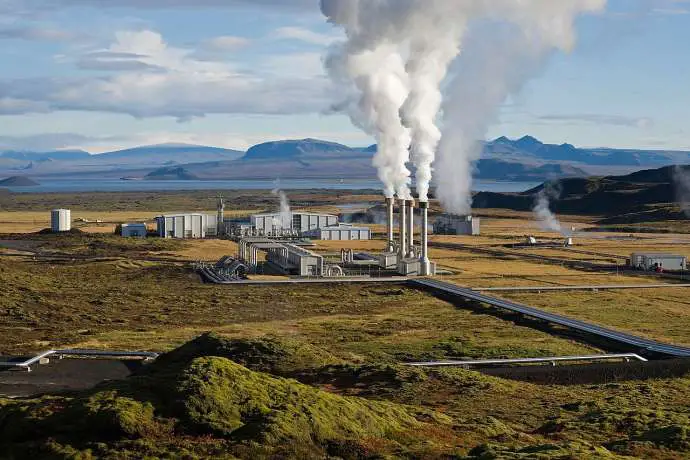STA, 31 December 2019 - Geothermal energy was long seen as a promising source of renewable energy, in particular in eastern Slovenia where geothermal potential is highest, but since the introduction of licence fees for geothermal exploitation in 2016, uptake has been stagnating. High licence fees are not the only issue, businesses also complain about onerous rules.
Geothermal energy - essentially water that is heated deep within the Earth's crust and then pumped to the surface - is not officially designated as a renewable source, even if the EU treats it as such. And licence fees for exploitation are also paid by users who only take the heat and then return the cooler water into nature, businesses say.
Several businesses in eastern Slovenia have urged the government to change the rules to designate geothermal energy a renewable resource, or to subsidise the construction of re-injection wells through which water is pumped back below ground after its heat energy has been harvested.
The Environment Ministry says that all EU countries must comply with provisions of the Water Directive which stipulates that businesses must pay for water use, adding: "There is no method at EU level as yet that would regulate compliance with this commitment in a uniform way."
However, the Infrastructure Ministry already treats geothermal energy as a renewable resource and said all measures must be coordinated at government level; exploitation of geothermal will even be promoted in the forthcoming National Energy and Climate Plan.
As for the abolition of fees for water that can be re-injected, the Environment Ministry says that water is subject to licence fees just like any other natural resource. The Infrastructure Ministry, on the other hand, already recognises certain exemptions for re-injection of thermal water, and the Economy Ministry says that the base for calculating the licence fee had been reduced for 2020 to benefit business.
But the variable nature of this base for calculations, called quotient D, is proving a major obstacle for businesses wanting to exploit geothermal energy.
One of the biggest such firms, Ocean Orchids, says this is problematic since quotient D can change at any time. "We simply cannot calculate the return on investment in a re-injection well over a ten-year period, which is why no bank wants to finance this," Ocean Orchids director Roman Ferenčak says.
As a result, the company, which had originally built its business around heating its greenhouses with cheap geothermal energy, no longer sees a business case for geothermal.
"We're at a point where the state will accept us emitting thousands of tonnes of additional CO2 into the atmosphere, even though the Infrastructure Ministry has a bill in the works that says all businesses must reduce fossil fuel use every year. Adding to that, the state subsidises the burning of gas in co-generation," he says.
Paradajz, a company which grows greenhouse tomatoes not far from Ocean Orchids, has a similar problem and says their production costs have almost doubled because of government policy.
The company build a geothermal well in 2011 for a million euro and invested another million in additional equipment since the introduction of water fees in 2016, but they cannot build a re-injection well because it is impossible to calculate how much it will end up affecting their bottom line.
"All these measures - licence fees, electricity costs and monitoring exercises prescribed by the state - have upended the cost-benefit ratio of geothermal. We can no longer speak about an economically favourable source of heating," Paradajz spokesman Kristijan Magdič says.
Analyses conducted by several agencies, including the Geological Survey, in the framework of the cross-border project Darlinge suggest Slovenia's geothermal potential is significant but poorly exploited. At present only 123 GWh of geothermal energy is harvested, with potential available energy twenty times as high.






